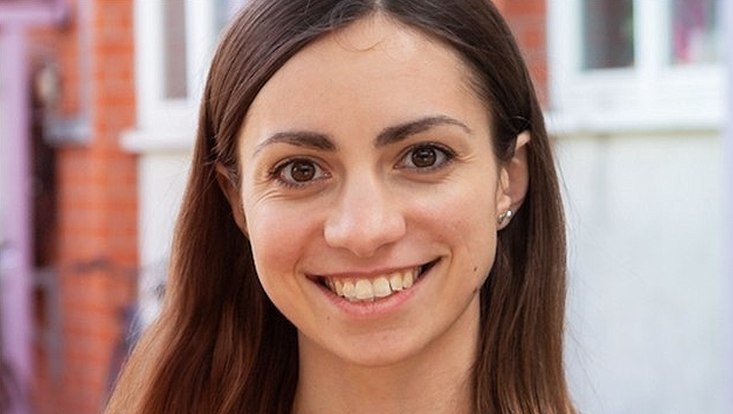Ksenia de Leo
12 January 2021

Photo: UHH/ Christina Krätzig
Ksenia de Leo is from Portogruaro, a small city near Venice in Northern Italy. She graduated from her Master in Physics in 2019 at the University of Trieste, Italy, with a thesis on the "Study of the double parton scattering in proton-proton collisions at the LHC and extraction of a new data-driven tune using multi-jet measurements". Her thesis focused on the study of the phenomenological aspects of Quantum Chromodynamics – the theory describing the strong interactions of quarks and gluons – at the Large Hadron Collider (LHC) at CERN, and the physics comparisons to Monte Carlo simulations.
What is the topic of your research?
I am a PhD student in the group Particle Physics with collider experiments of Prof. Johannes Haller, which is part of the CMS collaboration at the LHC at CERN. My project is focused on searches for new physics with the CMS experiment at the LHC. In particular we are looking for new phenomena in proton-proton collision with top quarks in the final state. Many theories beyond the Standard Model predict the existence of new heavy resonances that decay to top quark pairs. Using the newest techniques, we are able to identify the unique signature given by the highly energetic decays of the top quarks, thus being able to explore potential new particles and interactions.
What fascinates you about your research focus?
I was always fascinated by particle physics and the idea to study the building blocks of our Universe and their fundamental interactions. What I like the most about my research is that I can explore the boundaries of particle physics: despite the great success of the Standard Model, there are still many open questions and experimental observations that cannot be described. It is fascinating to search for the new phenomena and develop experimental tools to probe the unknown. The work is pioneering, and it’s exciting to know that we still have so much to understand!
What do you like about the cluster Quantum Universe?
The Quantum Universe Cluster offers a great opportunity to get to know the cutting-edge results achieved not only in my research field, but in various areas of physics and mathematics. During the Quantum Universe Days, we have the possibility to network and share our research strategies with colleagues from different groups. This gives me the chance to deepen my knowledge and inspires my work.
What do you like to do in your free-time?
In my free time I really enjoy exercising, for example practicing yoga and pilates, which is also a way to relax and free my mind after a day of work. During the pandemic, I discovered the passion for cooking, I like to try new recipes and get creative!
